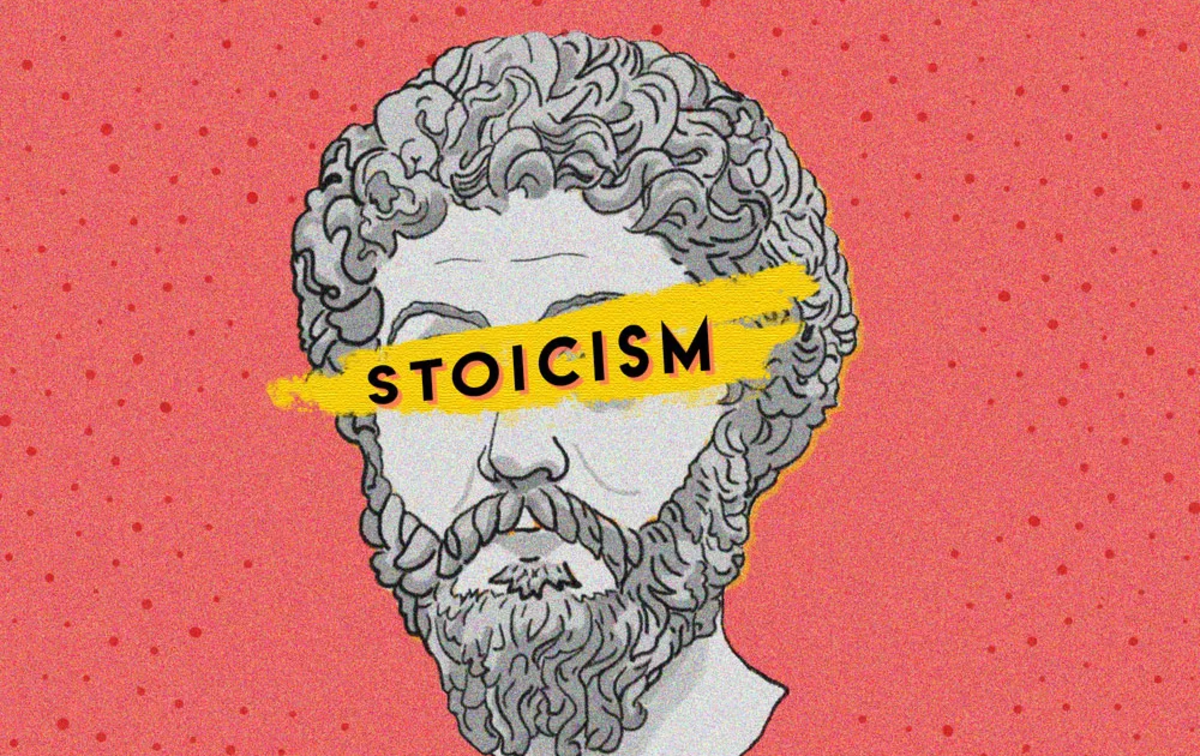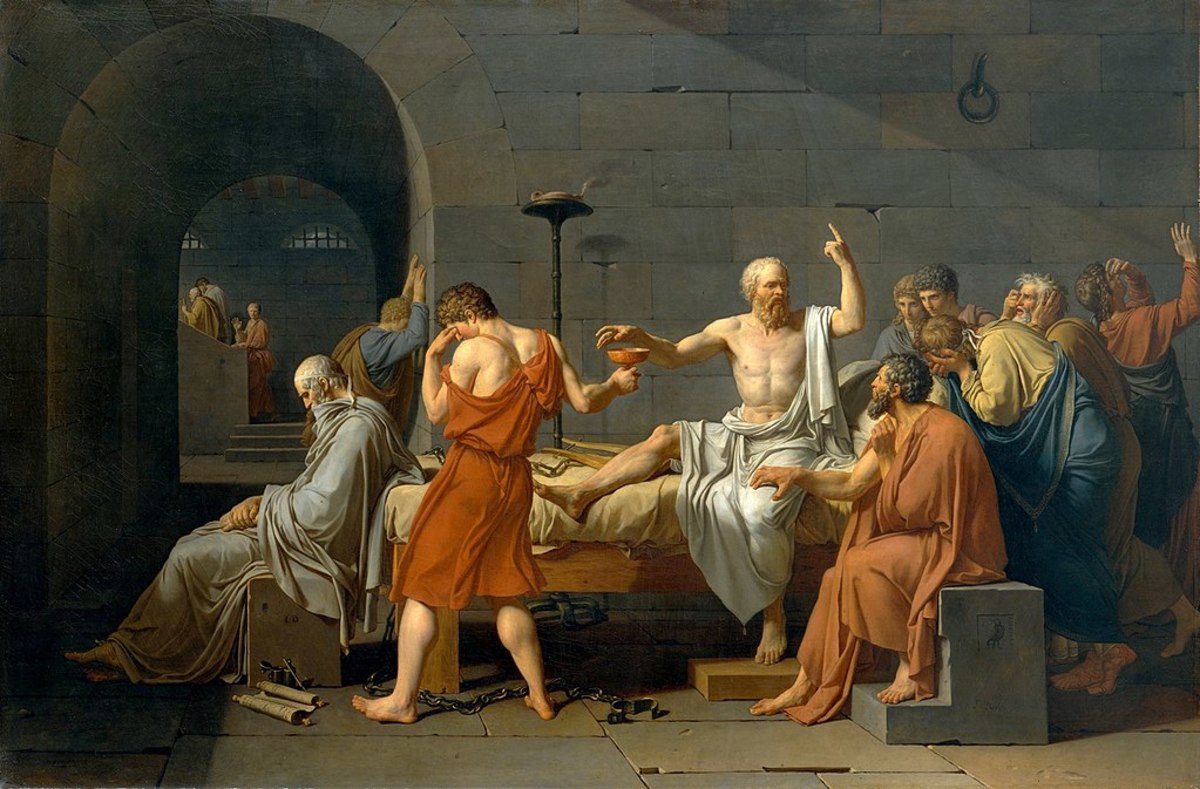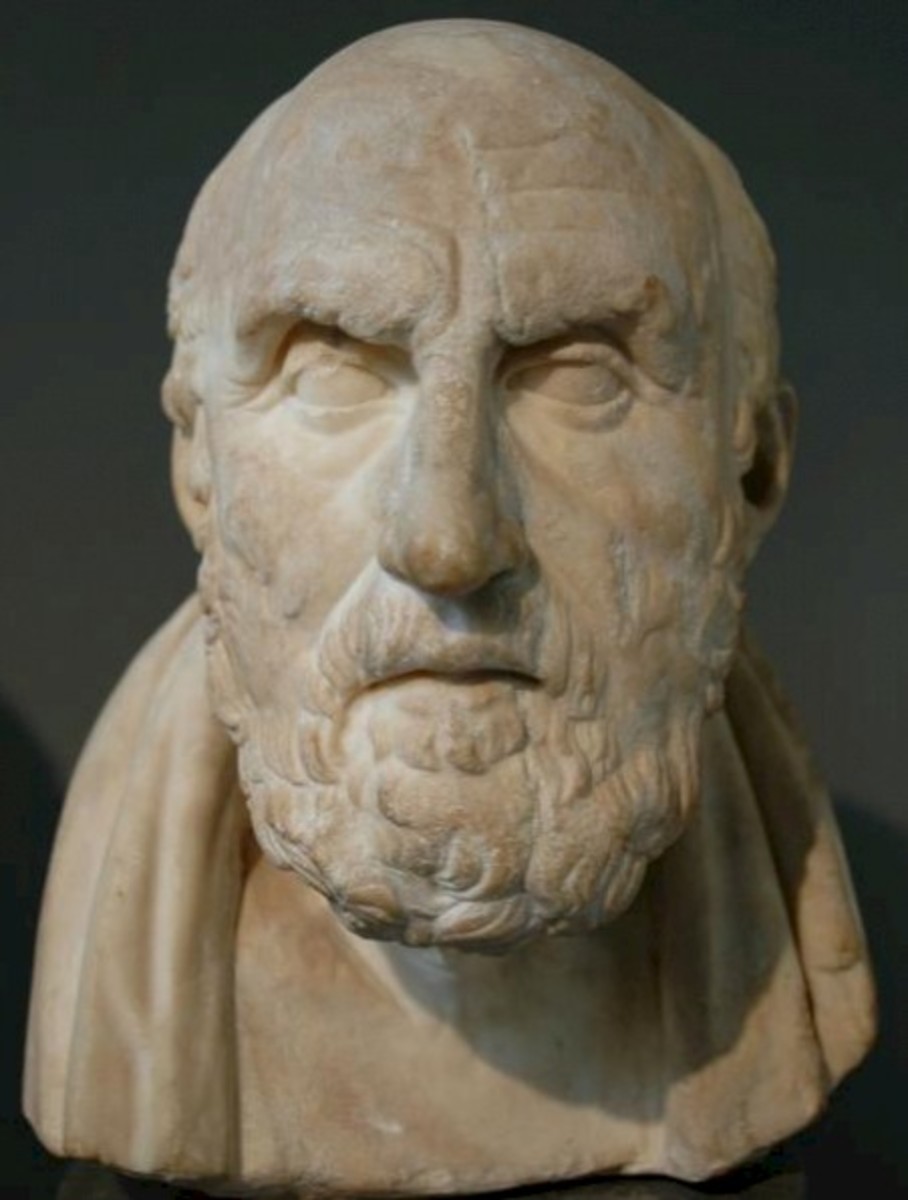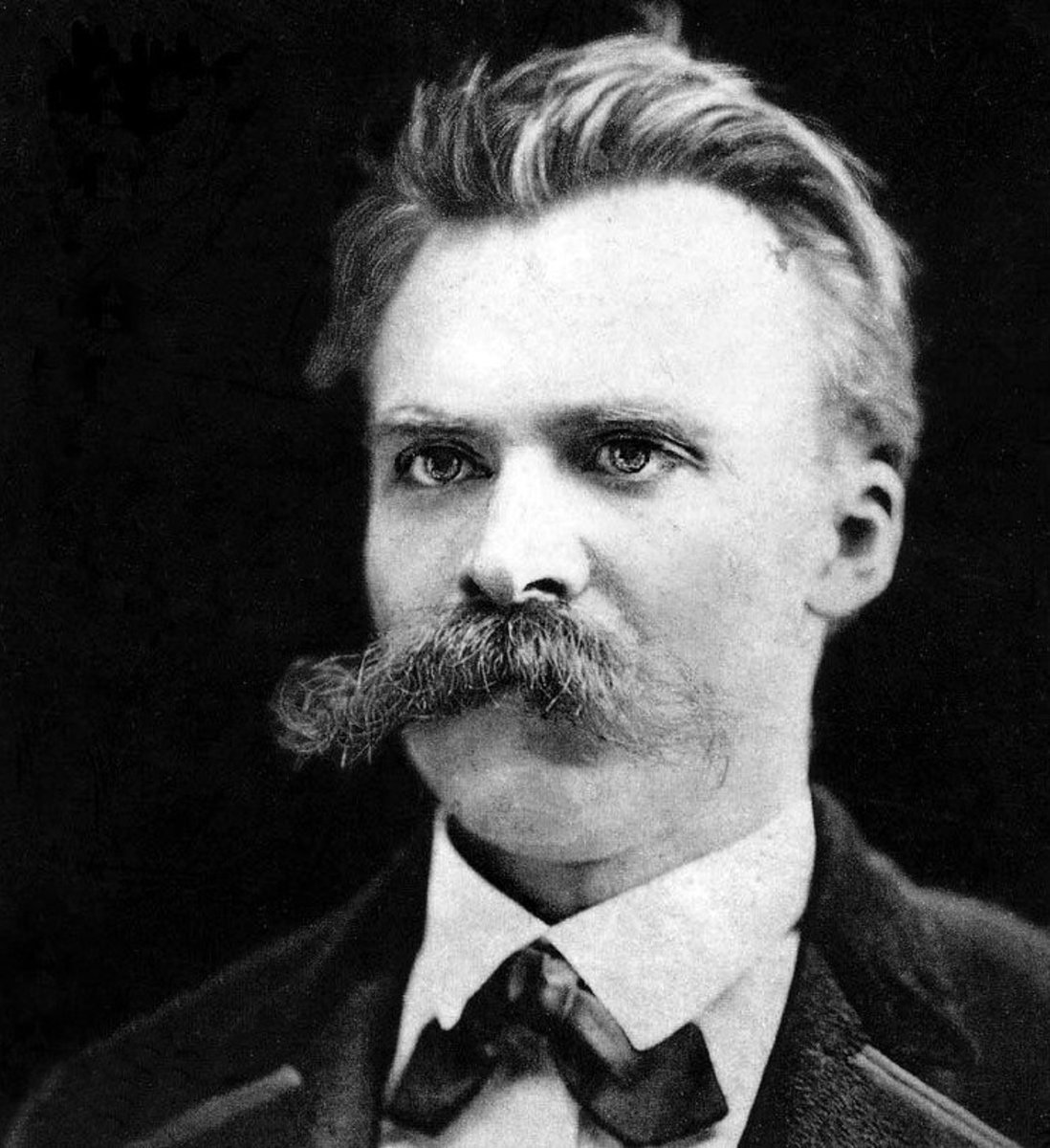Philosophy Simplified: Hellenism Part 1 - Stoicism and Epicureanism
Introduction
Hellenism is the years between 323BC and 31BC. This era means the peak of antiquity, where Greek culture dominated civilized western Europe. Hellenistic philosophy could as well be the subject of another 14 articles, but for the sake of simplicity I'm only going to describe the four most important schools:
- Stoicism
- Epicureanism
- Pyrrhonism (Skepticism)
- Cynicism
Why my choice? The understanding of stoicism is vital for a philosophical view on history, for it defined the morals and values of the Roman Empire as well as numerous neoclassical authors and poets (Schiller, for example).
Epicureanism is almost equal to the hippy lifestyle and values, actual in our contemporary world. Pyrrhonism is what most scientists follow and what's the base of the scientific theory. And then I choose Cynicism because ending your reading about antique philosophy with laughter will surely leave good memories.
The rest of my philosophical articles
- Philosophy Simplified: Introduction and Table of Contents
A beginner's guide to philosophy, from Thales to Wittgenstein, from ancient Greece to modern Britain. Each article describes an important topic in philosophy, aimed to teach and entertain.
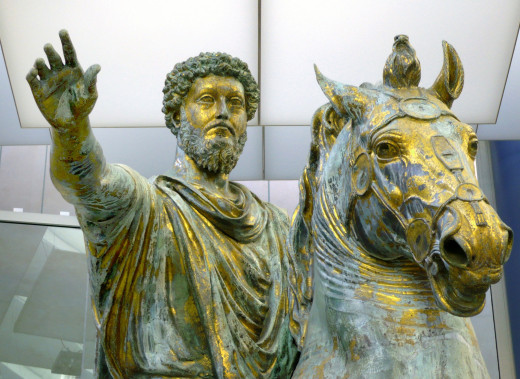
Stoicism
Founded by Zeno of Citium (334BC to 262BC), stoicism is a philosophical school built upon the denial of "destructive emotions" that would lead to errors in judgement. According to Zeno, "a person of moral and intellectual perfection would not suffer such emotions". Stoics believed in cosmic determination, and virtues, making their philosophy a "way of life" that defined behavior. Determination meant that stoics refused the idea of misfortune.
The point of the stoic life was to achieve the state of apatheia, "without passion", which means overcoming destructive emotions. This also meant accepting one's fate to be predetermined. Stoics are philosophers of the stoa, a hallway of columns.
The most virtuous stoic character can be understood through the anecdote of Seneca, Nero's tutor. After the mad Caesar accused him of being part of a conspiracy, Seneca was ordered to commit suicide. Seneca accepted his fate, and obeyed: he cut up his veins in a warm bath, and passed away in complete apatheia, according to the 'Annals of Imperial Rome'.
Zeno's teacher, Diodorus Cronus developed the idea of propositional logic, which Zeno implemented into the stoic philosophy. This, along with a deductive system became the stoic logic (stoic syllogistic). It is extensively described in over 300 books written by Chrysippus.
The stoics understood four categories in regards to the being:
- Substance
The matter which forms the individual object - Quality
The way in which physical ingredients form the individual object - Somehow disposed
Characteristics not present in the object (size, shape, ...) - Somehow disposed in relation to something
Characteristics related to other phenomena (location, ...)
Stoics believed in a kind-of rationalism, using reason to attain knowledge. Impressions and sensations can either be empirical or subjective beliefs (doxa). Through reason, one can attain clear knowledge out of these (katalepsis), which leads to the certain and true knowledge (episteme), attainable through verifying the katalepsis.
Stoics considered two archai, "physical first principles": a passive substance (mater) and an active substance (fate) or universal substance (logos): an intelligent, primordial fire that influences matter.
Stoic virtues are wisdom (sophia), courage (Andreia), Justice (Dikaiosyne) and Temperance (Sophrosyne), borrowed from Plato's philosophy. As mentioned before, suicide is justified in many cases according to stoics. Stoicism is cosmopolitan as well, reasoning that because all are from the same substance, we are virtually no different, and external differences like wealth are against nature.
Constantly regard the universe as one living being, having one substance and one soul; and observe how all things have reference to one perception, the perception of this one living being; and how all things act with one movement; and how all things are the cooperating causes of all things that exist; observe too the continuous spinning of the thread and the structure of the web.
— Marcus AureliusRecommended video
Recommended reading
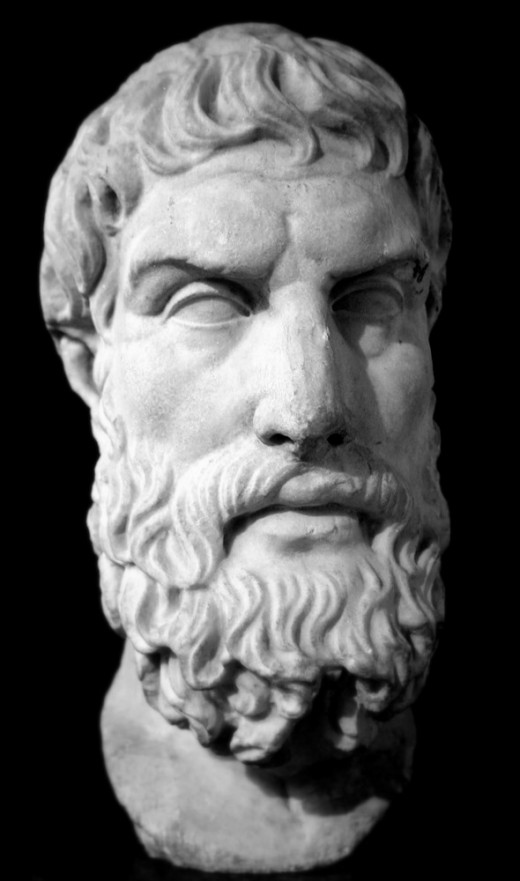
Epicureanism
Epicurus (341BC to 270BC), was the founder of Epicureanism and the grandfather of Hedonism.
His school was situated around his house and was called "The Garden". He admitted women to the school, being the first of his kind in ancient Greece.
The school itself was more of a fraternity, a group of college friends living together, enjoying life and sometimes discussing philosophy too.
Is God willing to prevent evil, but not able? Then he is not omnipotent.
Is he able, but not willing? Then he is malevolent.
Is he both able and willing? Then whence cometh evil?
Is he neither able nor willing? Then why call him God?
A famous quote, often falsely attributed to Epicurus: it first appeared 400 years after his death. It's still relevant though, because it can be applied to Epicurus's religious views: he considered the gods to be incapable of interfering.
He claimed that both gods and humans are made of atoms, bound together by souls (also made of atoms), with gods having souls that are bound forever, essentially reducing them to powerless, immortal humans. In fact, gods live in a state of ataraxia, "a state without fear and worry".
He placed the gods in metakosmia, places where the atoms did not form the world, meaning effectively a void between worlds, distancing the gods from humanity and reducing their ability to interfere even further. His views can be seen as similar to deism.
True happiness
In Epicureanism, ataraxia is the eudaimonia, "true hapiness". Tetrapharmakos is Epicurus's "Four-part cure" to reach ataraxia.
Don't fear god,
Don't worry about death;
What is good is easy to get, and
What is terrible is easy to endure
The first is quite evident, I think.
"Death means nothing to us...when we exist, death is not yet present, and when death is present, then we do not exist..."
Worrying about death provides unnecessary worry, leading away from ataraxia. This is contradictory with the Christian and medieval Memento Mori, "remember death", or "live in the shadow of death".
The third part means a simplistic lifestyle: shelter, food and water, avoiding gluttony and greed. The drive for riches generates unnecessary anxiety and leads away from ataraxia.
Illness and pain are only illusions, so they can be endured for as long as they linger on. Being concerned with pain generates unnecessary anxiety and leads away from ataraxia.
Epicurus believed that punishment is unnecessary. The fear generated by the anxiety associated with detection and shame is more than enough. Only laws that promote human happiness are just, he also developed an idea about the social contract based on mutual agreement to further happiness.
For epistemology, Epicureans believed in three criteria:
- Sensations (aisthêsis)
- Preconceptions (prolepsis)
- Feelings (pathê)
Feelings are merely to tell what brings pleasure and what brings pain. Sensory input should be the first in line, but should not be taken for granted, since our minds automatically adds and subtracts things to or from these impressions (preconceived notions). Sensory input does not lead to inaccuracy, only personal interpretation does.
Concepts are categories that can be recalled or formed mentally anytime using a codeword, these are the "meanings that underlie the words" (semantic substance of the words). Our feelings and emotions make us like or dislike certain objects that are sensed and are associated with the preconceptions.
These three criteria lead to assumptions that are either correct or incorrect, in order to decide about that they need to be verified.




